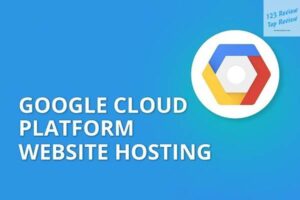Catering to the diverse needs of enterprises, startups, and developers, Google Cloud Platform (GCP) offers an extensive array of services that span computing, storage, networking, machine learning, security, and more.
In this article, 123 Review provides an in-depth exploration of GCP’s core services, storage options, networking solutions, security features, machine learning capabilities, data analytics tools, and integration services, shedding light on how each component can be leveraged to build, deploy, and scale applications in the cloud.
Core Services
At the heart of Google Cloud Platform are its core services, which form the foundation for building and running applications. These services offer flexible and scalable solutions that cater to a wide range of computational needs.
Compute Engine
Google Compute Engine is the IaaS offering that provides users with the ability to create and manage virtual machines (VMs) on Google’s global infrastructure. Compute Engine VMs are highly customizable, allowing users to choose from a variety of machine types, operating systems, and disk configurations. Whether you need a single instance for development or thousands of instances to run large-scale applications, Compute Engine can scale to meet your requirements.

Compute Engine also supports features like live migration, which ensures minimal downtime during maintenance, and preemptible VMs, which offer significant cost savings for fault-tolerant workloads. Additionally, users can leverage custom machine types to tailor the CPU and memory configuration to the exact needs of their applications, ensuring optimal performance and cost-efficiency.
App Engine
Google App Engine is a fully managed PaaS that allows developers to build and deploy applications with minimal operational overhead. App Engine abstracts away the complexities of infrastructure management, enabling developers to focus on writing code. It supports multiple programming languages, including Java, Python, PHP, Go, Node.js, and more, making it accessible to a wide range of developers.
One of the standout features of App Engine is its automatic scaling capability. Applications running on App Engine automatically scale up and down based on traffic, ensuring that resources are allocated efficiently. This is particularly beneficial for applications with variable traffic patterns, as it eliminates the need to manually provision or de-provision resources. App Engine also integrates seamlessly with other Google Cloud services, such as Cloud SQL and Cloud Storage, providing a cohesive environment for building modern web and mobile applications.
Kubernetes Engine
Google Kubernetes Engine (GKE) is a managed environment for deploying, managing, and scaling containerized applications using Kubernetes, an open-source container orchestration platform. GKE simplifies the complexities of container management by automating tasks such as cluster provisioning, upgrades, and monitoring.
GKE’s integration with Google’s global infrastructure ensures high availability and scalability for containerized applications. It supports features like auto-scaling, load balancing, and rolling updates, making it easier to manage and deploy applications in a production environment. Additionally, GKE integrates with other Google Cloud services, such as Cloud Build and Container Registry, enabling a streamlined CI/CD pipeline for rapid development and deployment.
Cloud Functions
Google Cloud Functions is a serverless compute service that allows developers to run event-driven code without the need to manage or provision servers. Cloud Functions automatically scales with the volume of incoming requests, ensuring that your application can handle varying levels of demand without any manual intervention.
Cloud Functions is ideal for building microservices, real-time data processing, and integrating with third-party services. It supports a variety of programming languages, including JavaScript (Node.js), Python, Go, and Java, and can be triggered by events from various Google Cloud services, such as Cloud Storage, Pub/Sub, and Firestore. This makes it a versatile tool for building responsive and scalable applications.
Storage Options
Google Cloud Platform offers a comprehensive suite of storage solutions designed to meet the diverse needs of modern applications. Whether you require object storage, block storage, or relational databases, GCP provides reliable and scalable storage options.
Cloud Storage
Google Cloud Storage is a highly durable and scalable object storage service that is designed to handle large amounts of unstructured data. It is suitable for a wide range of use cases, including storing backups, serving website content, and hosting large datasets. Cloud Storage offers four different storage classes—Standard, Nearline, Coldline, and Archive—each optimized for different access patterns and cost requirements.
Data stored in Cloud Storage is automatically encrypted at rest and in transit, ensuring the security of your data. Additionally, Cloud Storage supports features like Object Versioning, which allows you to keep multiple versions of an object, and Object Lifecycle Management, which helps you automate the process of transitioning objects between storage classes based on predefined rules.
Persistent Disk
Persistent Disk is a high-performance block storage service that can be attached to Compute Engine VMs. It offers reliable and consistent performance, making it ideal for applications that require fast and durable storage, such as databases, file systems, and containerized workloads.
Persistent Disks can be provisioned as either Standard (HDD) or SSD, depending on the performance requirements of your application. They also support features like automatic encryption, snapshots for backups, and resizing without downtime. Persistent Disks can be detached from one VM and attached to another, providing flexibility in managing storage resources.
Cloud SQL
Google Cloud SQL is a fully managed relational database service that supports popular database engines like MySQL, PostgreSQL, and SQL Server. Cloud SQL handles routine database management tasks, such as updates, backups, and patch management, freeing up developers to focus on building applications.
Cloud SQL is highly available, with built-in replication and automatic failover, ensuring that your database remains accessible even in the event of a failure. It also supports vertical scaling, allowing you to adjust the CPU and memory resources of your database instances as your application grows. Cloud SQL integrates seamlessly with other Google Cloud services, such as Compute Engine and App Engine, providing a cohesive environment for running relational databases in the cloud.
BigQuery
Google BigQuery is a fully managed, serverless data warehouse that enables fast SQL analytics over large datasets. BigQuery is designed to handle petabytes of data, allowing organizations to perform complex queries and gain insights from massive datasets in seconds.
BigQuery’s serverless architecture eliminates the need for managing infrastructure, allowing users to focus on analyzing data. It also supports integration with machine learning models through BigQuery ML, enabling organizations to build and deploy ML models directly within the data warehouse. Additionally, BigQuery’s built-in features, such as data partitioning and clustering, help optimize query performance and reduce costs.
Networking Solutions
Networking is a critical component of any cloud infrastructure, and Google Cloud Platform offers a range of networking solutions designed to provide high performance, security, and reliability.
Virtual Private Cloud (VPC)
Google Virtual Private Cloud (VPC) is a flexible and scalable networking service that allows you to define your private network space within Google Cloud. VPC provides global networking capabilities, allowing you to connect resources across multiple regions with low latency and high bandwidth.
VPC supports features like subnets, firewalls, and route tables, giving you granular control over your network architecture. It also allows you to create private connectivity to Google Cloud services using Private Google Access, ensuring that your traffic remains within the Google network. Additionally, VPC’s Shared VPC feature allows you to centrally manage network resources across multiple projects, enabling a consistent and secure network environment.
Cloud Load Balancing
Google Cloud Load Balancing is a fully managed service that distributes incoming traffic across multiple instances, ensuring high availability and reliability for your applications. Cloud Load Balancing supports both global and regional load balancing, making it suitable for applications with varying traffic patterns and geographic distributions.
Cloud Load Balancing integrates with other Google Cloud services, such as Compute Engine and Kubernetes Engine, enabling seamless scaling and failover. It also supports SSL/TLS termination, traffic splitting, and advanced routing features, allowing you to optimize traffic distribution and enhance security.
Cloud CDN
Google Cloud Content Delivery Network (CDN) is a globally distributed network of servers that accelerates the delivery of content to users by caching it at strategically located points of presence (PoPs) worldwide. Cloud CDN reduces latency and improves user experience by serving content from the nearest PoP, making it particularly beneficial for content-heavy applications like video streaming, gaming, and e-commerce.
Cloud CDN integrates with Cloud Load Balancing and Cloud Storage, providing a seamless solution for delivering static and dynamic content. It also supports features like custom SSL certificates, HTTP/2, and advanced caching configurations, allowing you to optimize content delivery for your specific needs.
Cloud Interconnect
Google Cloud Interconnect provides high-speed and low-latency connections between your on-premises infrastructure and Google Cloud. It offers two types of interconnect options: Dedicated Interconnect, which provides a direct physical connection to Google’s network, and Partner Interconnect, which allows you to connect through a Google Cloud partner.
Cloud Interconnect ensures secure and reliable connectivity, making it ideal for hybrid cloud environments where workloads are distributed across on-premises and cloud infrastructure. It also supports features like VLAN attachments and BGP routing, giving you granular control over your network traffic.
Security Features
Security is a top priority for Google Cloud Platform, and GCP offers a range of features and tools designed to protect your data, applications, and infrastructure.
Identity and Access Management (IAM)
Google Cloud Identity and Access Management (IAM) is a centralized service that allows administrators to control who can access specific Google Cloud resources by defining roles and permissions. IAM provides fine-grained access control, enabling organizations to enforce the principle of least privilege and reduce the risk of unauthorized access.
IAM supports predefined roles, custom roles, and service accounts, allowing you to tailor access permissions to your specific needs. It also integrates with other Google Cloud security services, such as Security Command Center and Cloud Audit Logs, providing a comprehensive security solution for managing access to cloud resources.
Security Command Center
Google Cloud Security Command Center (SCC) is a centralized dashboard that provides visibility into an organization’s security posture on Google Cloud. SCC helps you identify and mitigate potential security risks by offering actionable insights and automated responses.
Security Command Center integrates with other Google Cloud security services, such as Web Security Scanner and Event Threat Detection, providing a comprehensive view of your cloud environment. It also supports custom security policies and real-time alerts, enabling you to proactively manage and respond to security threats.
Data Loss Prevention API
Google Cloud Data Loss Prevention (DLP) API is a powerful tool that helps organizations discover, classify, and protect sensitive data across their cloud environment. The DLP API supports a wide range of data types, including personally identifiable information (PII), financial information, and healthcare data, making it a valuable tool for compliance with data protection regulations.
The DLP API provides tools for redacting sensitive information, anonymizing data, and enforcing data protection policies. It also integrates with other Google Cloud services, such as Cloud Storage and BigQuery, enabling seamless protection of sensitive data across your cloud environment.
Cloud Key Management
Google Cloud Key Management Service (KMS) allows you to create, manage, and rotate encryption keys used to secure your data on Google Cloud. KMS supports a variety of encryption standards, including AES-256 and RSA-2048, and integrates with other Google Cloud services, such as Cloud Storage and BigQuery, providing a seamless and secure encryption solution.
KMS also supports Cloud HSM (Hardware Security Module), which allows you to store and manage encryption keys in a FIPS 140-2 Level 3 certified hardware device. This ensures that your most sensitive data is protected with the highest level of security.
Machine Learning Capabilities
Google Cloud Platform offers a wide range of machine learning (ML) services and tools that enable businesses to build, deploy, and manage ML models at scale. Whether you’re a seasoned data scientist or a developer new to ML, GCP provides the resources you need to harness the power of machine learning.
AI Platform
Google AI Platform is an end-to-end development environment that enables organizations to build, deploy, and manage machine learning models. AI Platform supports the entire ML lifecycle, from data preparation and model training to prediction and monitoring, making it easier to develop and scale ML models in the cloud.
AI Platform integrates with popular ML frameworks, such as TensorFlow, PyTorch, and scikit-learn, allowing you to use your preferred tools and libraries. It also supports distributed training, hyperparameter tuning, and model versioning, enabling you to optimize and manage your ML models effectively.
AutoML
Google AutoML is a suite of tools that enables developers with limited machine learning expertise to train high-quality models specific to their business needs. AutoML automates tasks like hyperparameter tuning, feature engineering, and model optimization, allowing businesses to leverage machine learning without requiring in-depth knowledge.
AutoML supports a variety of use cases, including image recognition, natural language processing, and structured data analysis. It also integrates with other Google Cloud services, such as BigQuery and Cloud Storage, enabling seamless data integration and model deployment.
TensorFlow on Google Cloud
TensorFlow on Google Cloud offers a scalable and optimized environment for training and deploying machine learning models using TensorFlow, one of the most popular ML frameworks. Google Cloud provides pre-configured TensorFlow environments that are optimized for performance, allowing you to accelerate TensorFlow operations and reduce training time.
TensorFlow on Google Cloud supports distributed training, making it easier to train large and complex models. It also integrates with AI Platform and Google Kubernetes Engine, enabling seamless deployment of TensorFlow models in a production environment.
Dialogflow
Google Dialogflow is a platform for building conversational interfaces, such as chatbots and voice assistants. Dialogflow uses natural language understanding (NLU) and machine learning to enable sophisticated user interactions, making it easier to build conversational experiences that feel natural and intuitive.
Dialogflow supports a variety of use cases, including customer support, virtual assistants, and interactive voice response (IVR) systems. It integrates with popular messaging platforms, such as Google Assistant, Facebook Messenger, and Slack, allowing you to deploy your conversational interfaces across multiple channels.
Data Analytics Tools
Data analytics is a critical component of modern business operations, and Google Cloud Platform offers a range of tools designed to help organizations collect, process, and analyze data at scale.
BigQuery
Google BigQuery is a fully managed, serverless data warehouse that allows organizations to perform fast SQL analytics over large datasets. BigQuery’s serverless architecture eliminates the need for managing infrastructure, allowing users to focus on analyzing data.
BigQuery supports real-time analytics, making it easier to gain insights from streaming data. It also integrates with BigQuery ML, allowing you to build and deploy machine learning models directly within the data warehouse. Additionally, BigQuery’s advanced features, such as data partitioning and clustering, help optimize query performance and reduce costs.
Cloud Dataflow
Google Cloud Dataflow is a fully managed service for stream and batch data processing. Dataflow supports the Apache Beam SDK, allowing you to build complex data processing pipelines that can handle both real-time and batch data.
Dataflow’s unified programming model simplifies the development of data processing pipelines, allowing you to write code once and run it in both streaming and batch modes. It also integrates with other Google Cloud services, such as BigQuery and Cloud Storage, enabling seamless data processing and analytics.
Cloud Dataproc
Google Cloud Dataproc is a fully managed cloud service for running Apache Spark and Apache Hadoop clusters. Dataproc simplifies big data processing by automating tasks like cluster provisioning, management, and scaling, allowing you to focus on analyzing data rather than managing infrastructure.
Dataproc supports a wide range of open-source tools, including Hive, Pig, and Presto, enabling you to run familiar big data workloads in the cloud. It also integrates with other Google Cloud services, such as BigQuery and Cloud Storage, providing a comprehensive environment for big data processing and analytics.
Cloud Datalab
Google Cloud Datalab is an interactive tool for data exploration, analysis, and machine learning. Built on Jupyter, Datalab provides a flexible and powerful environment for analyzing large datasets, creating visualizations, and building ML models.
Datalab integrates with other Google Cloud services, such as BigQuery and Cloud Storage, enabling seamless access to data and compute resources. It also supports Python and SQL, making it accessible to both data scientists and analysts.
Integration Services
In today’s interconnected world, integration is key to building modern applications, and Google Cloud Platform offers a range of services designed to help you integrate your applications and services seamlessly.
Apigee API Management
Google Apigee is a comprehensive API management platform that enables organizations to design, secure, and scale APIs. Apigee provides advanced features like traffic management, API analytics, and security, making it a powerful tool for managing APIs in a multi-cloud environment.
Apigee supports a variety of API protocols, including REST and GraphQL, and integrates with other Google Cloud services, such as Cloud Functions and Cloud Run, enabling seamless API management and integration.
Cloud Pub/Sub
Google Cloud Pub/Sub is a messaging service that enables real-time event-driven architectures. Pub/Sub decouples services that produce events from those that process them, ensuring reliable communication and scalability across distributed systems.
Pub/Sub supports both push and pull message delivery, making it suitable for a wide range of use cases, including event-driven microservices, real-time data processing, and log aggregation. It also integrates with other Google Cloud services, such as Dataflow and BigQuery, enabling seamless data processing and analytics.
Cloud Tasks
Google Cloud Tasks is a fully managed service that allows you to execute tasks asynchronously, improving application performance and reliability. Cloud Tasks supports scheduling and rate control, making it ideal for background processing, such as sending emails, processing payments, and executing workflows.
Cloud Tasks integrates with other Google Cloud services, such as App Engine and Cloud Functions, enabling seamless task execution and management.
Cloud Run
Google Cloud Run is a serverless platform that allows you to run containerized applications without worrying about infrastructure management. Cloud Run supports any programming language and is suitable for stateless applications, APIs, and microservices.
Cloud Run automatically scales based on traffic, ensuring that your application can handle varying levels of demand. It also integrates with other Google Cloud services, such as Cloud Pub/Sub and Cloud Functions, enabling seamless integration and deployment.
Conclusion
Google Cloud Platform offers a comprehensive suite of services that cater to a wide range of business needs, from scalable compute power and advanced machine learning capabilities to secure storage options and robust networking solutions. Whether you’re looking to build, deploy, and scale applications, or harness the power of data analytics and machine learning, GCP provides the tools and infrastructure to drive innovation and success in the cloud. By leveraging Google Cloud Platform, businesses can not only optimize their operations but also gain a competitive edge in an increasingly digital world.





